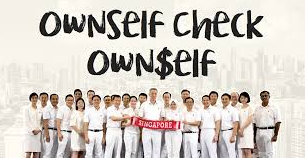After recent scandals, Singaporeans question the effectiveness of the ruling party’s self-accountability mantra.
In the wake of recent political scandals, the phrase “ownself check ownself”—once a hallmark of Singapore’s political accountability—has come under scrutiny. On August 2, Prime Minister Lee Hsien Loong delivered a Ministerial statement addressing the Corrupt Practices Investigation Bureau (CPIB) probe into Transport Minister S Iswaran and the resignation of two Members of Parliament (MPs) due to personal misconduct.
PM Lee emphasized the government’s commitment to integrity and transparency, declaring: “The way we have handled these incidents shows how seriously the [People’s Action Party] takes our responsibility of governing Singapore.” Despite this reassurance, the scandals have shaken public confidence and cast doubt on the party’s self-regulation mechanisms.
Origins of ‘Ownself Check Ownself’
The phrase was coined by Leader of the Opposition Pritam Singh in 2015, referencing the PAP’s dominance in Parliament and its responsibility for self-regulation. While Health Minister Ong Ye Kung later framed it as a virtue—emphasizing the need for self-accountability—the recent controversies have exposed vulnerabilities in this principle.
PM Lee revealed he was aware of the MPs’ inappropriate relationship as early as November 2020 but only addressed it publicly three years later. This delay has led to questions about the robustness of self-checking mechanisms and whether the party’s actions align with its promises of accountability.
The Fragility of the System
While the government initiated investigations into the Ridout Road saga and Minister Iswaran’s case, critics argue that these measures came too late to prevent the damage to public trust. The principle of “ownself check ownself,” once seen as a cornerstone of political integrity, now appears to be a reactive measure rather than a proactive safeguard.
Who Deserves Credit?
The handling of these scandals raises a broader question: Should credit for transparency go to the system or the public that demands it? The delayed response suggests that external scrutiny played a significant role in ensuring accountability. In a political culture that prizes transparency, withholding information risks alienating voters and damaging long-term trust.
Transparency as a Political Tool
The recent events highlight how transparency is often wielded as a political tool to maintain public confidence. While both the ruling party and the opposition have framed their disclosures as evidence of their integrity, the public remains skeptical. Transparency, when used selectively, risks losing its moral authority.
A Turning Point for Accountability?
The fallout from these scandals marks a turning point in Singapore’s political landscape. The phrase “ownself check ownself” may no longer carry the weight it once did, but it has sparked critical conversations about the need for stronger checks and balances.
Singaporeans now face a choice: Should they place their trust in a system that depends on self-regulation, or push for greater diversity of opinions and independent oversight in Parliament?








